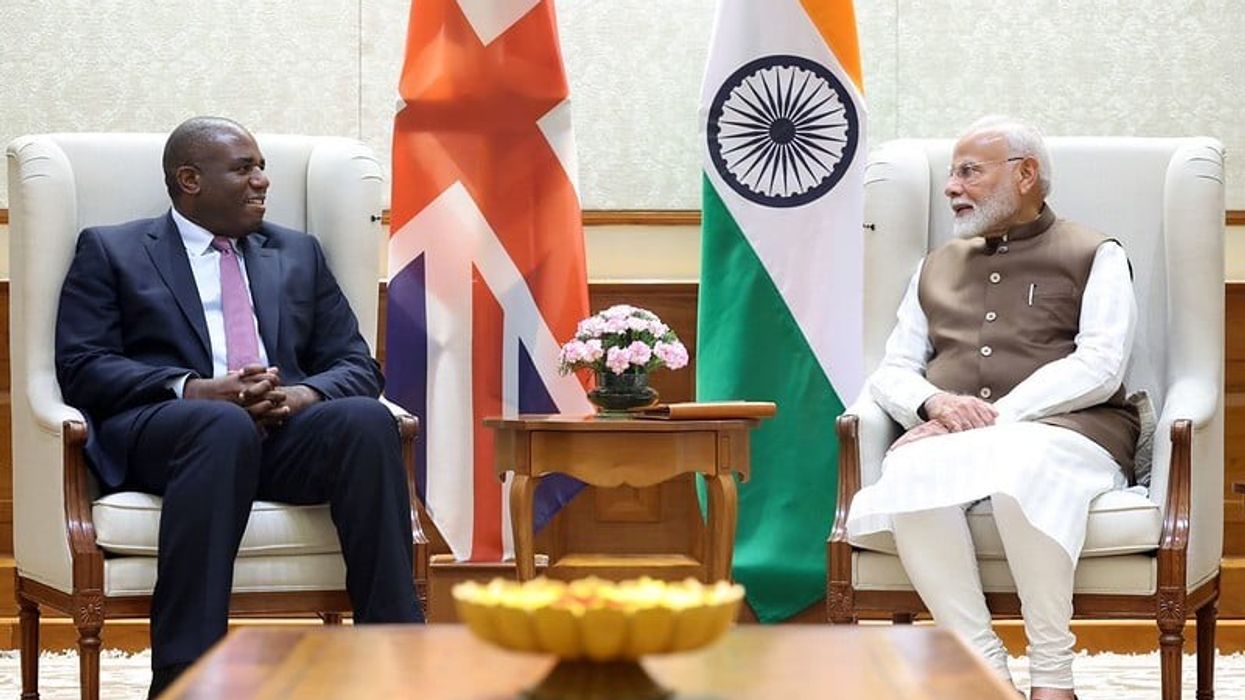THE UK said on Wednesday (24) it had launched a new technology security initiative with India aimed at boosting economic growth, fostering collaboration on telecoms security and unlocking investment in emerging technologies.
The government said the agreement would see the two countries work more closely together on critical technologies including semiconductors, quantum and AI.
"This will mean real action together on the challenges of the future from AI to critical minerals. Together we can unlock mutual growth, boost innovation, jobs and investment," foreign secretary David Lammy said in a statement released by his office during a visit to India.
Lammy, who met with Indian prime minister Narendra Modi and minister for external affairs earlier on Wednesday, also agreed to work more closely with India on tackling climate change, including mobilising finance and accelerating a partnership on off-shore wind and green hydrogen.
According to the statement, national security advisors of both the countries have agreed on the security initiative to enhance cooperation in critical and emerging technologies. The partnership will focus on areas like telecoms, AI, quantum computing, health technology, and semiconductors.
It aims to strengthen the tie-up between the two countries' governments, industries, and academic institutions, and is part of efforts to renew the UK-India comprehensive strategic partnership.
Additionally, a new £7 million funding for future telecoms research was launched by UK Research and Innovation (UKRI) and India's Department of Science and Technology.
Peter Kyle, secretary of state for science, said, “The UK and India are recognised the world over as powerhouses for science, innovation and technology - and this new agreement will deliver growth and untold benefits for citizens across both nations.
“From telecoms and semiconductors to biotechnology and AI, these generation-defining technologies will unlock countless new opportunities and innovations, so we can deliver for working people here and in India as we deepen our long-standing partnership.”
'India remains committed to elevate ties'
Modi said the country remains committed to elevating its ties with the UK and welcomed the desire to conclude a mutually beneficial free trade pact.
In a post on ‘X’, Modi also appreciated the priority accorded by prime minister Keir Starmer to broaden and deepen the India-UK comprehensive strategic partnership.
Lammy's visit to New Delhi is the first high-level engagement between India and the UK after Starmer’s Labour government came to power on July 5.
“A pleasure to meet UK FS @DavidLammy. Appreciate the priority accorded by PM @Keir_Starmer to broaden and deepen the Comprehensive Strategic Partnership,” Modi said.
“Remain committed to elevating the ties. Welcome the bilateral Technology Security Initiative and the desire to conclude a mutually beneficial FTA."
Lammy described the negotiations for the trade deal as the floor and not the ceiling of the ambitions to unlock shared potential and deliver growth.
“India is the emerging superpower of the 21st century, the largest country in the world with 1.4 billion people and one of the fastest growing economies in the world,” Lammy said.
“Our Free Trade Agreement negotiations is the floor not the ceiling of our ambitions to unlock our shared potential and deliver growth, from Bengaluru to Birmingham."
(with inputs from Reuters, PTI)





